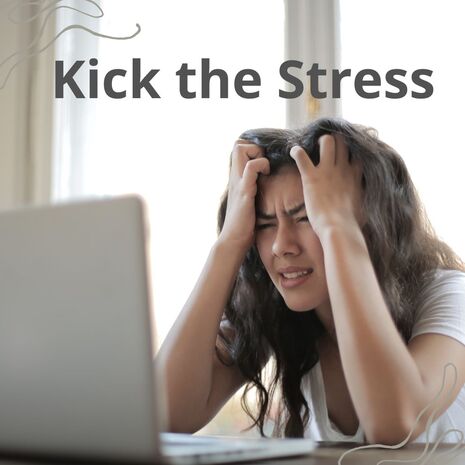Dealing with stress and burnout
The last few years have hit us hard. The motto “Work hard, play hard” (already a fallacy) has been replaced with “Work hard and then work even harder, because fun and games are hard to come by.”
Burnout tends to affect both women and men because we have to keep a lot of things up in the air. Our roles as parents, partners, employees, children, friends, etc. place constant demands on us. in this hyper-connected yet disconnected world.
The feeling of running on an empty stomach with no time to refuel and recover is an all too familiar feeling.
What is the burnout trifecta?
- Exhaustion: Feeling of emotional exhaustion, exhaustion and loss of energy.
- cynicism: A negative attitude toward customers and those you work with, feeling irritable, and withdrawing from people and activities you once enjoyed.
- Ineffectiveness: Experience decreased personal performance, a perceived decline in competence or productivity, and expend energy at work without seeing results.
Although no gender is immune to burnout, research has shown that men and women process these dimensions of burnout differently. Women typically felt exhaustion first, followed by cynicism and finally ineffectiveness. The men, on the other hand, tended to feel first cynicism and then exhaustion.
Physical and emotional symptoms
- Chronic fatigue, from daily tiredness to complete exhaustion where you simply cannot cope with the day ahead.
- insomnia
- Lack of focus and concentration
- Physical symptoms such as chest pain, racing heart, shortness of breath, gastrointestinal pain, dizziness, fainting or headache (all should be checked by a doctor).
- Increased illness.
- No appetite
- Anxiety and depression
- Fury
Burnout and fatigue in Chinese medicine
There is a saying in Chinese medicine: “One disease, many roots; one root, many diseases.” The example illustrates how burnout can manifest itself in slightly different ways depending on the person. In TCM, the common cause is kidney deficiency.
Aside from TCM, our kidneys (along with our adrenal glands) are one of our most important organ systems. Together they connect our brain to our instincts and intuition. The kidneys influence our hormonal rhythms and our response to stress, shock, fear and trauma: think cortisol release and your body's hypothalamic-pituitary-adrenal (HPA) axis. This pathway is responsible for regulating your body’s sympathetic “fight-or-flight” response.
In TCM, kidney health is expressed through brain, bones, ears and hair. Given this theory, doesn't it make sense that as our Kidney Qi decreases, mild memory loss, osteoporosis, deafness, and hair loss become more prominent? While all of this can occur with age, environmental and lifestyle factors also weaken kidney qi. These include sleep deprivation, drug abuse, nutrient deficiencies (due to loss of appetite/diet/digestive problems), and hours of physical/mental exertion without rest.
Does this sound familiar?
On an energetic level, the kidneys are the root of our body's life force. They store our reserves of inherited Qi and vital essence (Jing). Think of the kidneys as our body's savings account, a reservoir from which we all too often draw nutrition but which we don't often refill.
When your Kidney Qi is abundant, you have healthy self-confidence, direction, and the willpower to pursue your goals.
How can acupuncture help?
Acupuncture is a gentle, safe and effective therapy that promotes the body's natural physiological processes that become weakened or pathological due to chronic stress, trapped emotions, and long-standing illness and injury.
Acupuncture reminds the body to repair, regulate and heal itself.
From a Western scientific perspective it is:
- Downregulates your body's stress response by moving it from a “fight or flight” state to one where it can “rest and digest.” Because of this, patients fall asleep during treatments, hear gurgling/belly noises during sessions, experience a deeper sense of calm, and report sometimes having better sleep quality after just one treatment.
- Increases the body's natural feel-good hormones to relieve pain.
- Reduce cortisol and increase serotonin to relieve anxiety, depression, irritability and stress.
- Promotes blood flow to the brain to improve cognitive functions and the intestines to regulate autonomic functions. Think – Heart Rate: Reduce heart palpitations, Digestion: Improve nutrient absorption, appetite and energy levels; regulates bowel movements.
- Increases blood circulation to relax tense muscles and reduce joint stiffness
- Strengthens the body's immune system to reduce inflammation and reduce inflammatory processes
For patients who come to us during and after burnout, their appointments are the right time to unwind, replenish their energy reserves and restore their resilience to life's stressors. It is a time when you are not on high alert so that your body can heal in the way it needs.
We can also combine this with functional medicine and herbal medicine for a killer combination.
5 Simple Ways to Combat Burnout
- Eat well. Focus on nutritious and easily digestible foods. Remember to replace salads with boiled and roasted foods.
- Sleep well. Revenge, staying up late has no place here! Get into a good sleep cycle
- Drink water. Keep water close by, because you're actually thirstier than you think
- Learn to say NO. There are so many demands on our time that we can't possibly get everything done and you don't have to either.
- Plan some activities to reduce your stress levels. Find what makes you feel good


